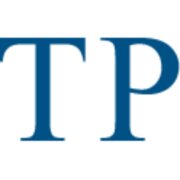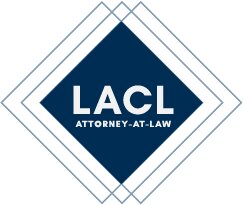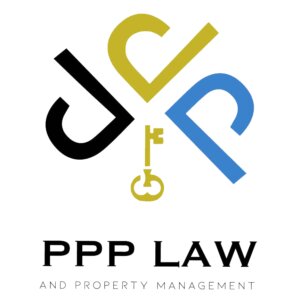Best Mining Law Lawyers in Huai Khwang
Share your needs with us, get contacted by law firms.
Free. Takes 2 min.
List of the best lawyers in Huai Khwang, Thailand
About Mining Law in Huai Khwang, Thailand
Mining Law governs the extraction of minerals and other geological resources from the earth in Thailand. Huai Khwang, located within Bangkok, is primarily an urban district, but Mining Law can impact activities related to construction, property development, environmental protection, and mineral resource management. Thai Mining Law is mainly regulated by the Minerals Act B.E. 2560 (2017), which establishes the framework for licensing, operational controls, environmental protections, and community engagement. Understanding your legal obligations is essential before undertaking any mining or related activity in Huai Khwang.
Why You May Need a Lawyer
Consulting a mining law specialist can be vital in several situations, including:
- Applying for permits and licenses to conduct mining or excavation.
- Navigating regulations when purchasing or developing land that may contain mineral resources.
- Handling disputes with neighbors, landowners, or governmental agencies related to mining activities.
- Responding to allegations of environmental impact or non-compliance with safety standards.
- Creating contracts with contractors, laborers, or equipment suppliers involved in mining operations.
- Understanding recent changes to Thai mining legislation and their implications for your project.
A lawyer with local expertise ensures your activities comply with both national and district-specific regulations.
Local Laws Overview
In Thailand, mining activities are primarily regulated by the Minerals Act and relevant environmental laws such as the Enhancement and Conservation of National Environmental Quality Act. The Department of Primary Industries and Mines (DPIM) handles mineral resource licensing and enforcement. For Huai Khwang:
- Strict urban zoning restrictions generally limit or prohibit mining operations. Small-scale excavation (for construction or utilities) may still require permission or notification.
- Environmental impact assessments are typically required before any earth movement, especially in populated districts like Huai Khwang.
- Licensing from both the local district office and national agencies may be needed, depending on the project size and scope.
- Noise, dust, vibrations, and waste management are closely monitored due to the proximity to residential and commercial buildings.
- Penalties for unauthorized mining or improper land use can include fines, orders to restore land, or even criminal charges.
Frequently Asked Questions
What activities are considered mining under Thai law?
Mining includes extraction of minerals for commercial use, including sand, gravel, limestone, and certain types of soil for construction projects.
Can I carry out any form of mining in Huai Khwang?
Due to Huai Khwang’s urban status, large-scale mining is generally not permitted. Small excavations may be allowed with proper authorization and adherence to local ordinances.
Do I need a license or permit for mineral prospecting or excavation?
Yes, you typically need a license or permit from both the local authority and the Department of Primary Industries and Mines before starting any mineral-related activity.
What are the penalties for illegal mining in Huai Khwang?
Penalties include fines, suspension of activities, restoration orders, and potential criminal prosecution depending on the severity of the violation.
How do environmental regulations affect mining activities?
Environmental regulations require you to mitigate dust, noise, and pollution, and may require a full Environmental Impact Assessment before beginning work.
Who enforces mining regulations in Huai Khwang?
Enforcement is handled by the local district office, Bangkok Metropolitan Authority, and national agencies such as DPIM.
Can a foreigner own mining rights in Thailand?
Foreigners can invest in mining companies but are subject to restrictions and must comply with Foreign Business Act requirements.
What is the process for resolving a mining dispute?
Disputes can usually be addressed through administrative appeals, mediation, or court proceedings, depending on the issue’s nature.
Can mining laws affect my private construction project?
Yes, if your project involves excavation or the removal of mineral resources, you may need permits and must ensure compliance with mining and environmental regulations.
Where can I get help if I am accused of illegal mining?
Consult a qualified mining law lawyer immediately. You may also seek guidance from government agencies responsible for mining oversight.
Additional Resources
Finding reliable information and assistance is crucial. Consider these resources:
- Department of Primary Industries and Mines (DPIM) - national agency for mining permits and regulation.
- Bangkok Metropolitan Administration (BMA) - local office for zoning, building permits, and environmental compliance.
- Ministry of Natural Resources and Environment - responsible for Environmental Impact Assessments and conservation.
- Legal Aid Centers and local law firms specializing in property and mining law.
- Chambers of Commerce and business associations, for investment and regulatory advice.
Next Steps
If you plan to be involved in any activity related to mining or mineral extraction in Huai Khwang, prioritize compliance and informed decision-making:
- Assess your project’s scope and determine what permissions or licenses may be needed.
- Gather all necessary documents regarding land ownership, project plans, and environmental assessments.
- Contact a qualified lawyer specializing in mining law and local regulations in Huai Khwang.
- Consult with relevant governmental agencies early in your planning to clarify requirements and expectations.
- Remain up to date on changes to local and national mining policies.
- Respond to any legal notices or allegations promptly and with legal support.
By following these steps and seeking guidance from qualified professionals, you can protect your interests and ensure legal compliance in all mining-related activities in Huai Khwang, Thailand.
Lawzana helps you find the best lawyers and law firms in Huai Khwang through a curated and pre-screened list of qualified legal professionals. Our platform offers rankings and detailed profiles of attorneys and law firms, allowing you to compare based on practice areas, including Mining Law, experience, and client feedback.
Each profile includes a description of the firm's areas of practice, client reviews, team members and partners, year of establishment, spoken languages, office locations, contact information, social media presence, and any published articles or resources. Most firms on our platform speak English and are experienced in both local and international legal matters.
Get a quote from top-rated law firms in Huai Khwang, Thailand — quickly, securely, and without unnecessary hassle.
Disclaimer:
The information provided on this page is for general informational purposes only and does not constitute legal advice. While we strive to ensure the accuracy and relevance of the content, legal information may change over time, and interpretations of the law can vary. You should always consult with a qualified legal professional for advice specific to your situation.
We disclaim all liability for actions taken or not taken based on the content of this page. If you believe any information is incorrect or outdated, please contact us, and we will review and update it where appropriate.













